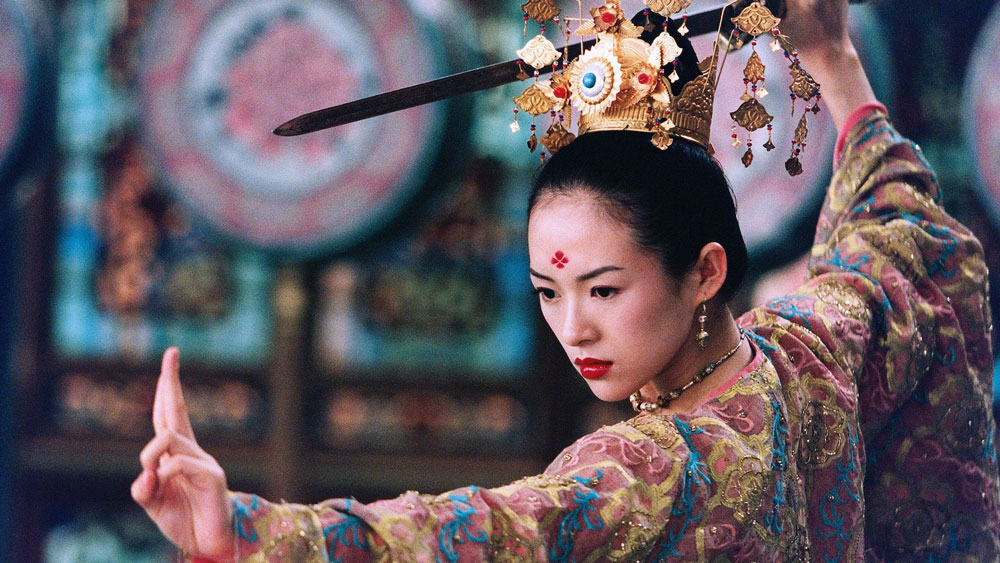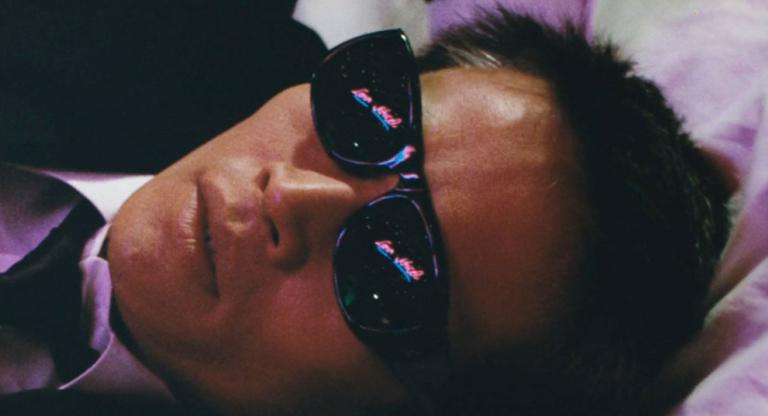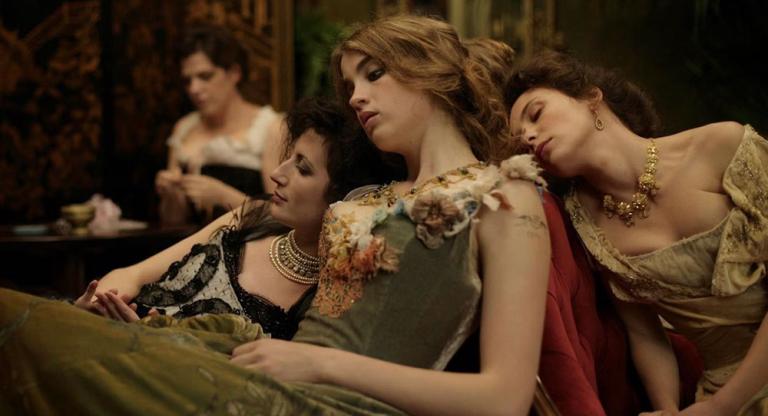Zhang Yimou’s House of Flying Daggers (2004) arrived in cinemas at a moment when martial arts films, and the Chinese national cinema at large, held a chokehold on global audiences. Coming off the box office victory lap from Ang Lee’s Crouching Tiger, Hidden Dragon (2000) and Zhang’s own Hero (2000), Chinese language cinema had arguably reached its peak in notoriety among Western critics and the average ticket-holder alike. This short-lived golden era of joint co-productions between Mainland China, Hong Kong, and Taiwan came at the optimistic dawn of a new era. In the new millennium, with the Handover of Hong Kong in the rearview mirror and the PRC fully integrating itself into the globalized international economy, the renewed interest in Wuxia cinema coincided with a moment that called for a revitalization in national mythmaking.
Set during the twilight years of the Tang Dynasty, imperial officers Jin (Takeshi Kaneshiro) and Leo (Andy Lau) set their sights on infiltrating a group of Robin Hood-esque militants who call themselves the “Flying Daggers.” Since the band’s leader is a tightly kept secret, the officers hatch a plan to capture and gain the trust of a blind courtesan named Mei (Zhang Ziyi), whom they suspect to be an undercover member of the rebel contingent. In line with the expectations of Wuxia storytelling—a narrative tradition that traces its origins to underground serialized novellas of the early ‘20s, but was immortalized on-screen by entities such as the Shaw Brothers Studios—one might expect the film’s events to conclude by drawing clear lines in the sand. Though the genre has seen many variations, stories often center around vigilantes, wandering heroes similar to Japanese ronin, who uphold a strict martial code in the midst of lawless chaos. Often functioning both as mass entertainment and salient political critiques, these tales usually take clear sides and delineate good from evil, weak from strong, and righteous rebels from oppressive tyrants. House of Flying Daggers subverts and confuses these cleanly defined archetypes.
The translation of the film’s Chinese title is “Ten-sided Ambush”—an apt description for the chaotic volley of combat and deceit that defines the work. The film’s three protagonists, each played by actors hailing from different Chinese-speaking territories, lead double lives that are pushed to untenable tipping points. While in Hero various twists and turns reveal a chivalrous plot that is enacted to unify the nation under one banner, House of Flying Daggers presents fighting that seems to know no end. Every precisely choreographed battle, where silk-clad warriors dance across opulent pleasure houses and breathtaking vistas, leaves a warpath painted in blood and tears. Zhang’s martial arts blockbuster is one that formally celebrates the triumphant grandeur of the nationalist project by painting a vibrant cinematic world that rivals Hollywood’s spectacle. However, the film also expresses an unease toward this oncoming zenith, questioning the lies and repressed desires at its foundation.
House of the Flying Daggers screens this evening, April 9, at Asia Society on 35mm as part of the series “Films to See Before You Die.”



